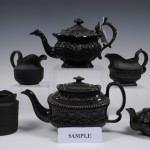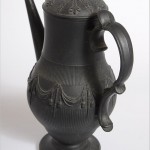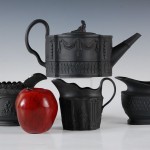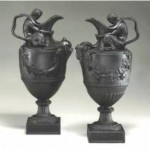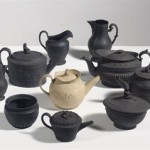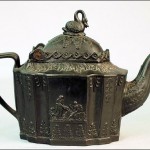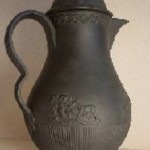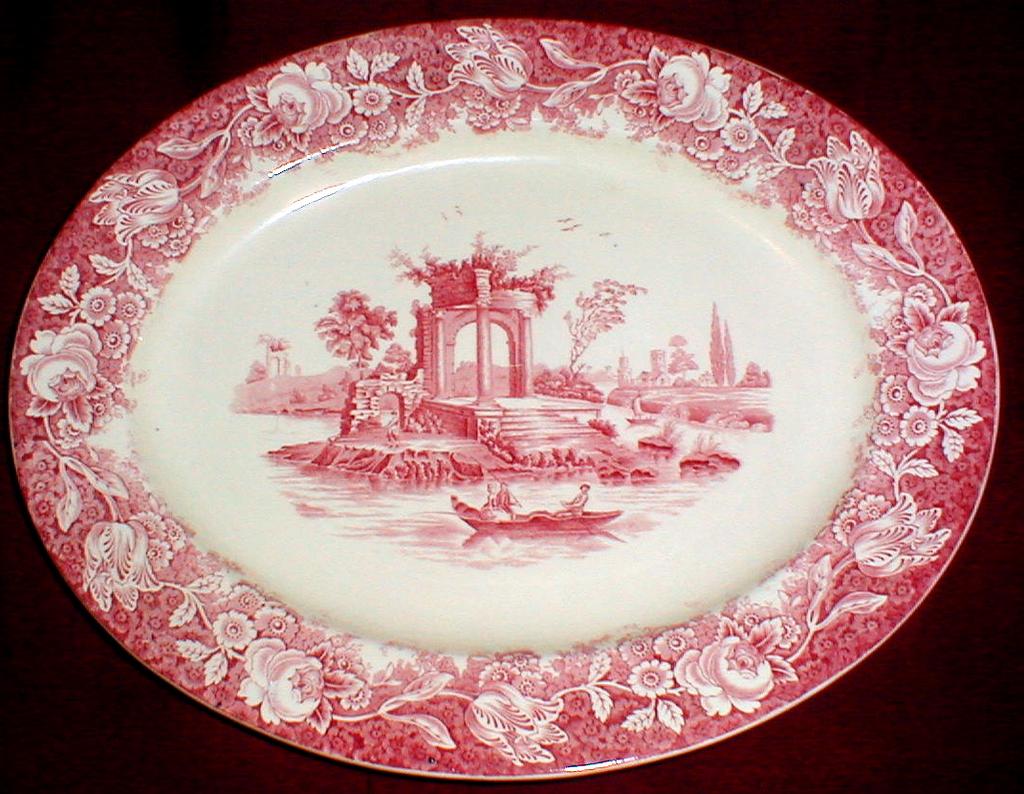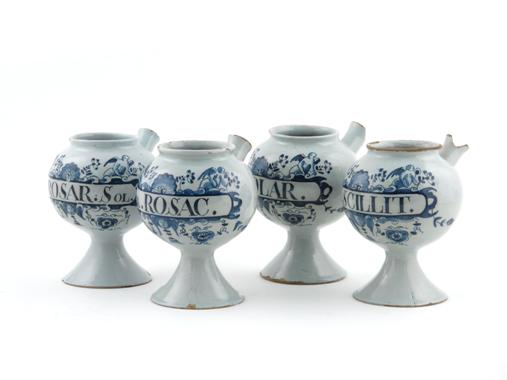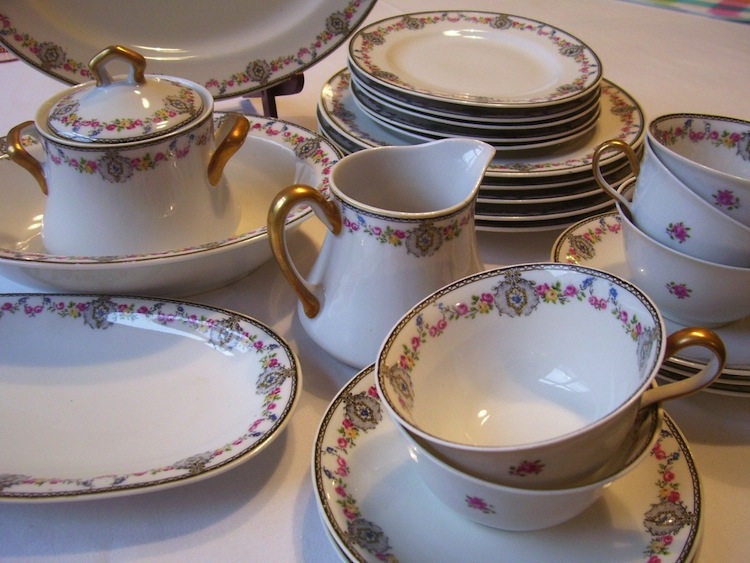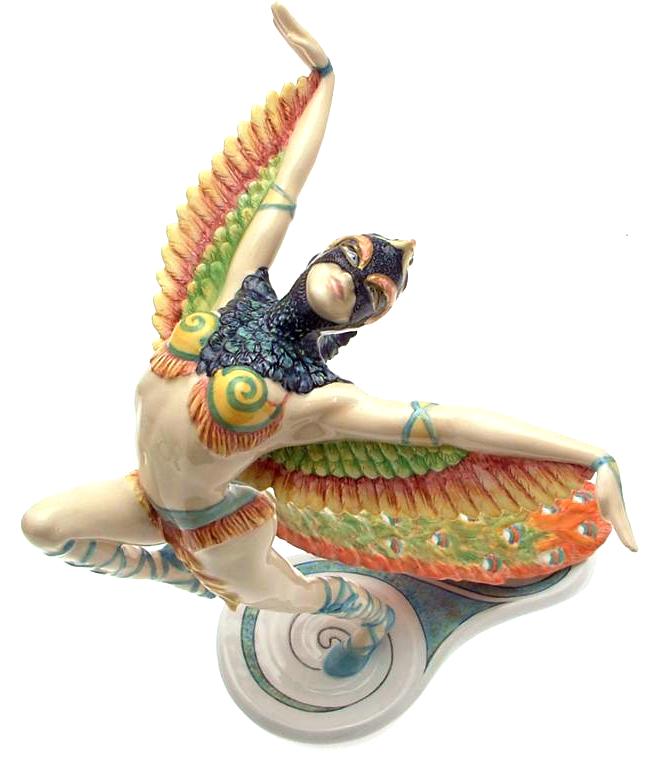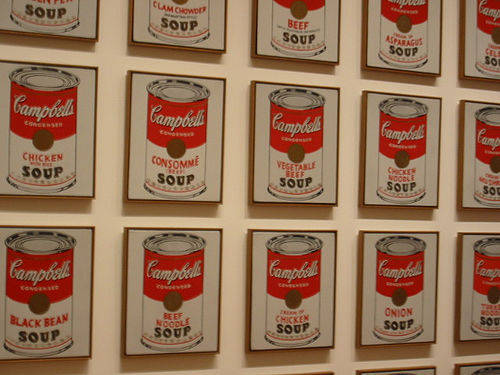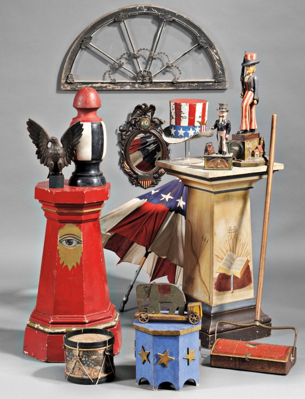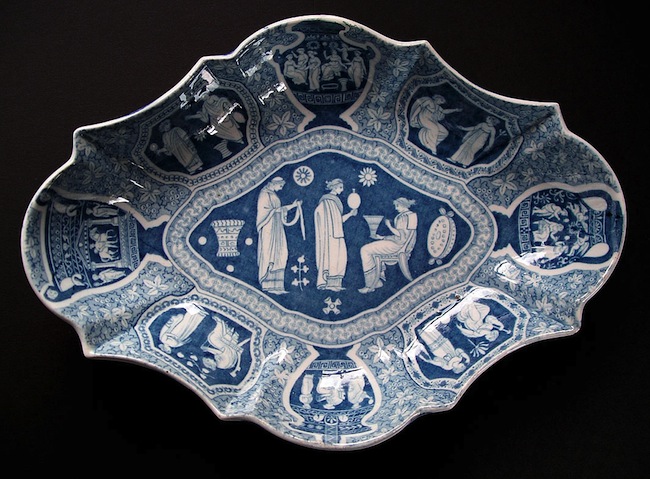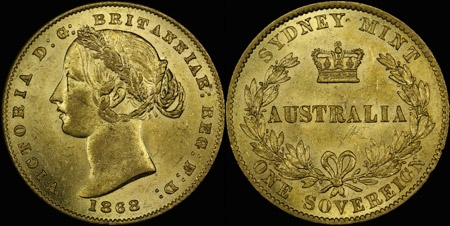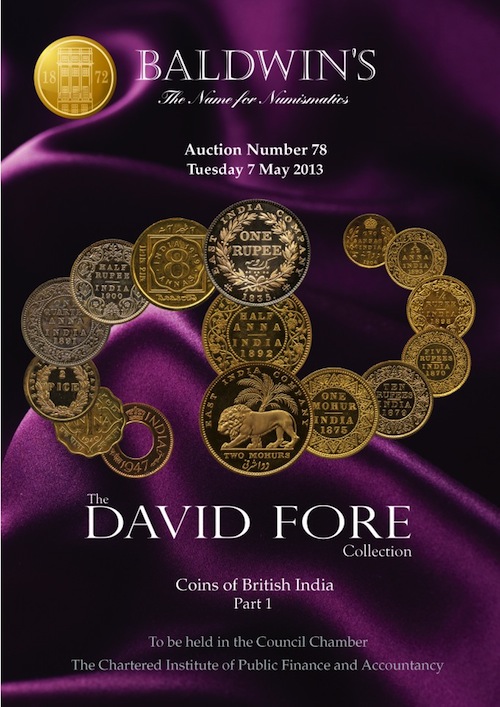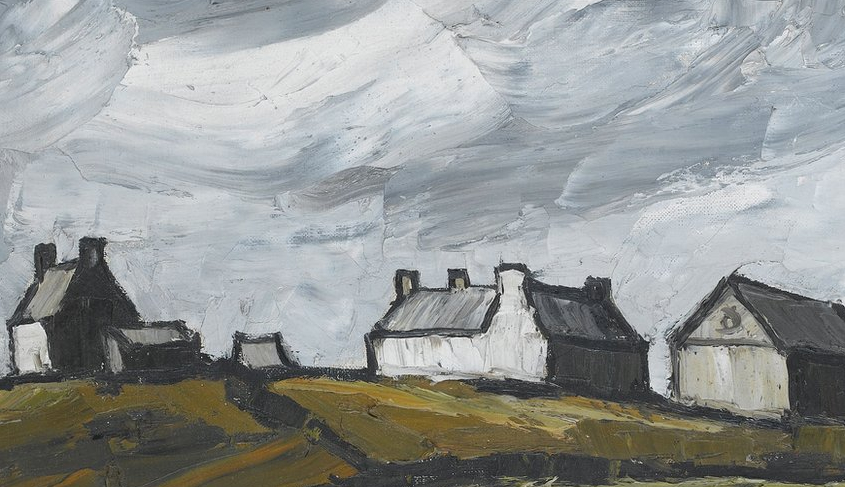Black basalt ware is also called Egyptian Black basalt. This hard black stoneware was created and perfected by Josiah Wedgwood at his Etruria pottery in Staffordshire, England around the end of the 18th century. The stoneware was named after the volcanic mineral, basalt, and was used to create vases, candlesticks, and busts of historical figures, which were very popular in their time. Tea services made from this material were highly valued because boiling water could be poured directly into them with no fear of cracking the pieces.
Most of the items were decorative and functional items, usually with low relief designs based upon antiquity as decoration. Some historians believe that this particular style of stoneware was created specifically for the funeral market at the time, but this is only conjecture. Created in the neoclassic style, the pieces were popular until the start of the 20th century when the stoneware finally dropped out of vogue.
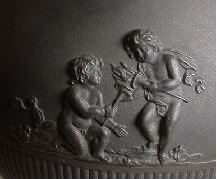 Many pieces have survived from the 1760’s due to the proliferation of production at the time. Although few pieces from this era were marked, all production was impressed with the Wedgwood mark by 1780. Wedgwood’s designs were widely copied by countless factories, some of them copying designs as soon as they reached store shelves. Large vases could be created with this material as well as realistic classical busts for libraries and mansions.
Many pieces have survived from the 1760’s due to the proliferation of production at the time. Although few pieces from this era were marked, all production was impressed with the Wedgwood mark by 1780. Wedgwood’s designs were widely copied by countless factories, some of them copying designs as soon as they reached store shelves. Large vases could be created with this material as well as realistic classical busts for libraries and mansions.

